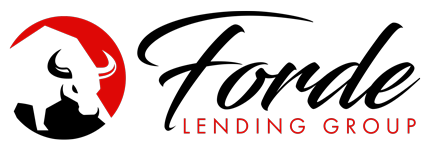How it works
Hard money loans can offer real estate investors a quick and relatively easy option for financing. While they might be an option for borrowers who don’t have good credit, their relatively high interest rates and shorter repayment periods can make them risky.
What Is a Hard Money Loan?
A hard money loan is a type of secured loan that’s used to buy hard assets—usually real estate. Instead of relying on the creditworthiness of a borrower, hard money lenders instead weigh the merits of the investment that a borrower is looking to fund and use that investment as collateral.
You won’t find these loans from traditional lenders such as banks. Instead, they come from individual investors, investing groups and financing companies.
Individuals and companies may take out hard money loans to purchase property as part of an investment. They might be amateur or professional home flippers who want to quickly buy, repair, upgrade and then sell a home. Or they might be looking to buy and repair a rental property, build a new property or purchase a commercial property for their business.
How Are Hard Money Loans Different From Traditional Mortgages?
Hard money loans differ from traditional mortgages in several ways, including how they’re typically used: Hard money loans are more often used to buy investment properties, rather than paying for a place to live. As with other types of loans, the requirements and terms can vary depending on the lender and deal. However, hard money loans generally share a few key similarities regardless of who is issuing them:
- Fast funding: While closing on a mortgage can take 30 to 60 days, you can usually get a hard money loan in a few days or weeks.
- Short-term loans: Hard money loans often have short repayment periods, which range from six months to several years. In comparison, mortgages commonly have 15- or 30-year repayment terms.
- High interest rates: Interest rates on hard money loans can range from around 8% to 15%, which is much higher than what most people pay on a mortgage.
- Interest-only payments: With a hard money loan, you might be able to initially make interest-only payments or defer hard money loan payments. With a mortgage, you’ll generally start repaying the principal and interest immediately.
- Less focus on credit: Hard money lenders might check your credit, request proof of income and ask about your experience with real estate investing. However, they’re generally most concerned with the property’s value. In contrast, your credit score and debt-to-income (DTI) ratio can be major factors in qualifying for a mortgage.
- Require a large down payment: You may need to make a 20% to 35% down payment based on the property’s current value or its after repair value (ARV). There are conventional mortgages that don’t require a down payment, or only require 3.5% to 5% down.
- Costs and fees: Mortgages and hard loans both have closing costs of around 2% to 5%, although these costs may cover different types of expenses. Both types of loans can also have penalties if you pay them off early, but hard loans may have lower fees or shorter penalty periods.
What Are the Risks of Hard Money Loans?
A hard money loan could seem like a quick and simple way to jump into real estate investing. However, their high interest rates and short repayment terms can make them risky for borrowers.
For example, you might make interest-only payments initially and then have to repay the entire loan at the end of a 12-month term. But if you buy a home to flip and there are delays during the repairs or you can’t find a buyer, you may not be able to repay the loan on time.
Some hard money lenders allow you to pay a fee to extend the repayment term of your loan, but the fee and extra interest could outweigh your returns. And if you can’t repay the loan, the lender could foreclose on the property.
What Are Other Options?
There are other ways to finance an investment property, and some may offer more favorable rates and terms than hard money loans. These include:
- A second mortgage: If you’re a homeowner, you may be able to get a home equity line of credit (HELOC) or home equity loan. The interest rate may be much lower than what you’ll pay for a hard money loan, but you’ll also be putting your current home up as collateral.
- Borrowing from friends or family: You may be able to raise funds from friends, family members or other individuals who are interested in funding your deal. While they may agree to favorable terms, you need to be clear about the risks involved and consider how the loan could impact your relationship.
- Government-backed loan programs: The U.S. Federal Housing Administration (FHA) and the Department of Veterans Affairs (VA) have loan programs that are worth looking into if you’re planning on buying and living in a multi-unit property. The Small Business Administration (SBA) also has loan programs for small business owners who want to purchase commercial property.
- Seller financing: In a seller-financing scenario, the seller acts as the lender in the real estate purchase. This kind of financing is rare, but could be an option for someone with less-than-stellar credit. Seller financing can also be a risky approach—potential negatives include high down payments and less buyer protection than traditional loans.
Unlike hard money loans, your credit reports and scores can be major factors in qualifying for these financing programs. If you have poor credit, taking time to improve your credit before applying could be wise. And if you’re not sure what your score is, you can check your Experian credit report and FICO® Score☉ for free. Experian will also give you insights on what factors are most helping or hurting your credit.
